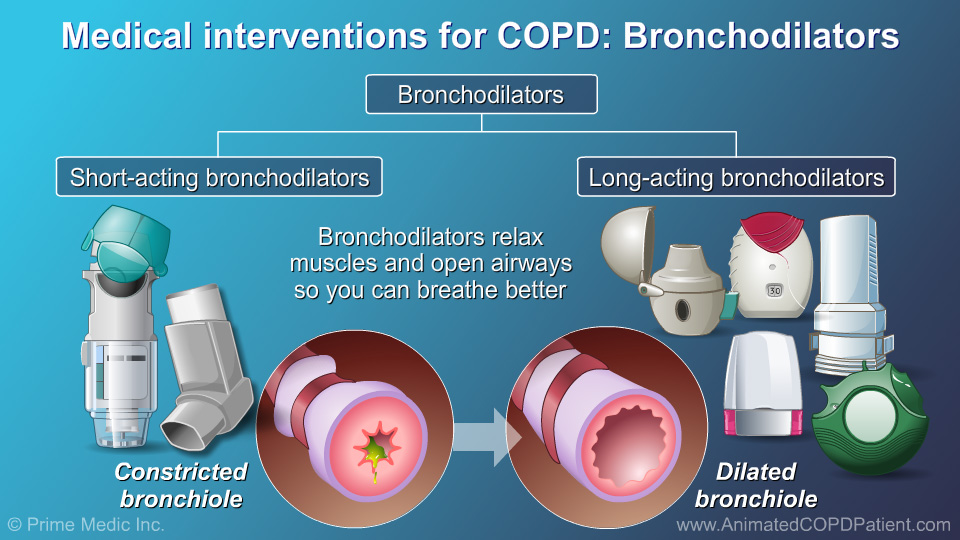Beyond Bronchodilators: Cutting-Edge Therapies for COPD Management
Share IT

Launch Your Dream Website with Us!
Click Here to Get in touch with Us.
Categories
Novel Treatments for COPD
A Look Towards the Future: Novel Approaches and Progress in COPD Research
Airflow restriction is a hallmark of chronic obstructive pulmonary disease (COPD), a progressive lung illness. The field of COPD treatment is changing quickly, despite the fact that there is no known cure. In an effort to better manage symptoms, halt the progression of the disease, and perhaps even provide a route towards regeneration and repair, researchers are investigating cutting-edge treatments and creative approaches.
Thank you for reading this post, don't forget to subscribe!Table of Contents

Moving Beyond Conventional Bronchodilators: Customising Care for Each Patient
Novel Treatments for COPD
Conventional bronchodilators ease breathing by relaxing the muscles that encircle the airways. But research is breaking new ground:
- Long-Acting Muscarinic Antagonists (LAMAs): More recent LAMAs with extended half-lives, such as glycopyrrolate and aclidinium, may decrease the frequency of administration and increase adherence.
- Dual-Acting Bronchodilators (LABAs/LAMAs): Using a single inhaler to combine a long-acting beta-agonist (LABA) and a long-acting beta-agonist (LAMA) produces a stronger bronchodilation action that enhances airflow and may lessen exacerbations.
- Targeted Therapies: Scientists are working to uncover particular biochemical and genetic markers that help distinguish between different COPD subtypes. This may open the door to therapies that are specifically designed to meet each patient’s needs.
Targeting Inflammation: Going Beyond Bronchodilation
Novel Treatments for COPD
A major factor in the progression of COPD is inflammation. Novel treatments provide extra advantages by focusing on particular inflammatory pathways:
- Phosphodiesterase-4 (PDE4) Inhibitors: More research is required to determine the long-term advantages of these drugs, but they may help reduce inflammation and improve lung function.
- JAK-Inhibitors: JAK inhibitors are demonstrating potential as treatments for other inflammatory diseases. Research is being conducted to determine how well they manage COPD.
Stem Cell and Regeneration: A Pioneering Advance in COPD Management
Novel Treatments for COPD
Innovative methods are being investigated by researchers to treat the underlying damage in COPD:
- Stem cell therapy: Damaged lung tissue may be repaired by stem cells. Although this field is still in its infancy, it has great potential for treating COPD in the future.
- Gene therapy: The goal of gene therapy is to address genetic defects that lead to the onset or progression of COPD. Although it is still in its infancy, it might provide a long-term fix.
- Surgery for Lung Volume Reduction (LVRS): Techniques for less invasive LVRS are being investigated to enhance safety and recovery time, perhaps increasing accessibility to this option for certain patients with severe COPD.
Precision Medicine: Tailored Care for Maximum Benefits
Novel Treatments for COPD
Precision medicine is most likely where COPD treatment is headed. Comprehending the distinct genetic and biological composition of an individual patient’s COPD enables the customisation of treatments for more focused and efficient treatment. This strategy could result in:
- Enhanced Symptom Management: Customised treatments may offer more efficient symptom management, enhancing COPD patients’ quality of life.
- Decreased Exacerbations: More stable conditions may result from customised therapy regimens that lessen the frequency and intensity of COPD exacerbations.
- Reduced Disease Progression: It may be possible to reduce the rate at which lung function deteriorates by focusing on particular pathways that contribute to the progression of COPD.
Beyond Drugs: Integrative Management to Promote Better Health
Novel Treatments for COPD
Although new treatments present promising opportunities, managing COPD still involves many different aspects. Keep in mind these crucial elements:
- Quitting smoking: is still the single most important measure for preventing exacerbations and slowing the development of the disease.
- Exercise: for pulmonary rehabilitation can strengthen breathing muscles, increase exercise tolerance, and lessen symptoms.
- Vaccination: Vaccinating against pneumonia and the flu lowers the risk of respiratory infections, which are a common cause of exacerbations.
- Nutritional Support: Eating a balanced diet and staying at a healthy weight can enhance general health, including lung function.
In conclusion, patients with COPD have a hopeful future.
Novel Treatments for COPD
The management of COPD has a bright future ahead of it. For those with COPD, new treatments, improvements in focused care, and an emphasis on regeneration provide a ray of hope. Through active engagement in their care, adoption of a holistic approach, and continued education on the most recent research, patients can effectively manage their illness and look forward to a better future.
Notice: This information is not meant to be a substitute for expert medical advice; rather, it is meant for general understanding only. Always seek the advice of a medical professional for COPD diagnosis and treatment.

Launch Your Dream Website with Us!
Click Here to Get in touch with Us.





























































Recent Comments